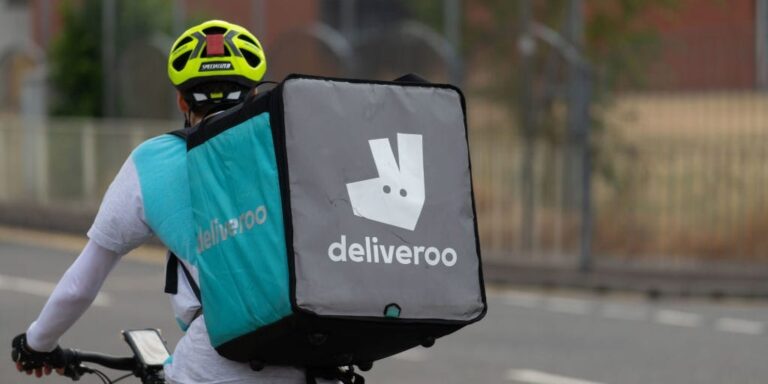A food delivery driver in the UK faces potential imprisonment for biting off a customer’s thumb, in a case that reveals a worrying loophole for delivery app customers.
In December 2022, Jenniffer Rocha, 35, got into a heated argument with a man who ordered a pizza using the Deliveroo app, according to the BBC. Deliveroo is a popular food-delivery app in the UK.
In the altercation that followed, she bit off his thumb.
She pleaded guilty to grievous bodily harm and is due to be sentenced in May, the BBC reported.
But despite the victim, identified by the outlet as Stephen Jenkinson, losing his livelihood due to the incident, Deliveroo isn’t legally responsible even though Rocha was working as a substitute driver.
A spokesperson for Deliveroo told Business Insider that it was an “awful incident” and that the company has ended the account of the rider Rocha was substituting for.
“Gone through a chainsaw”
Jenkinson, the 36-year-old victim, told the BBC that Rocha had attacked him after they got into an argument about the delivery code.
She bit his thumb as he raised his hand to her helmet, he said.
“All I remember, I was shaking her helmet trying to get her off,” he added. “The force with which she must have been biting, she’d clean taken it off.”
He said that it was as if he had “gone through a chainsaw.”
Jenkinson needed an operation to replace his thumb with part of his big toe.
The incident left Jenkinson, a plumber, “ruined,” he told the BBC.
Prosecutor Rebecca Austin told the court that it had “a physical and psychological impact and continues to this day,” The Mirror reported.
No liability for delivery apps
Despite the life-changing injury, Jenkinson can’t turn to Deliveroo for compensation.
The company vets its riders to ensure they have no unspent criminal convictions, are eligible to work, and meet its standards of delivering food safely.
But in the UK its riders are classed as self-employed, and Deliveroo says it is not liable for the actions of self-employed people.
Self-employed people in the UK legally have the option to provide substitutes for jobs they don’t want to or can’t take on.
Deliveroo’s guidance for riders states: “When you appoint a substitute it’s your responsibility to make sure that this person meets all of the requirements to work with Deliveroo.”
This essentially places the responsibility on the rider.
Uber Eats and Just Eat have similar approaches in the UK.
“Under the UK’s employment law, self-employed independent couriers have the legal, unfettered right to use a substitute,” a spokesperson for Just Eat told Business Insider.
“Legally, this means the courier account-holder is responsible for ensuring their substitute meets the necessary standards to deliver on our network,” they added. “If we find that our high expectations are not met, we will immediately take action, including removing couriers from our network.”
The spokesperson said the company is working with lawmakers to improve safety in this area.
Uber Eats was not reachable for comment.
Jenkinson’s lawyer, Alex Barley, told the BBC that the practice of substitution should be stopped. “Companies should be required to carry out necessary checks on all people working for them,” he said.
In November, a BBC investigation revealed that people as young as 15 have worked for delivery apps through substitution.
One 17-year-old Deliveroo substitute rider died while renting a stranger’s Deliveroo account to earn some extra money.
Responding to that incident, Anthony Sakrouge, a partner at the UK employment law firm Russell-Cooke Solicitors, told Business Insider that this system is “open to abuse” by people who have criminal convictions or don’t have the right to work in the UK.


